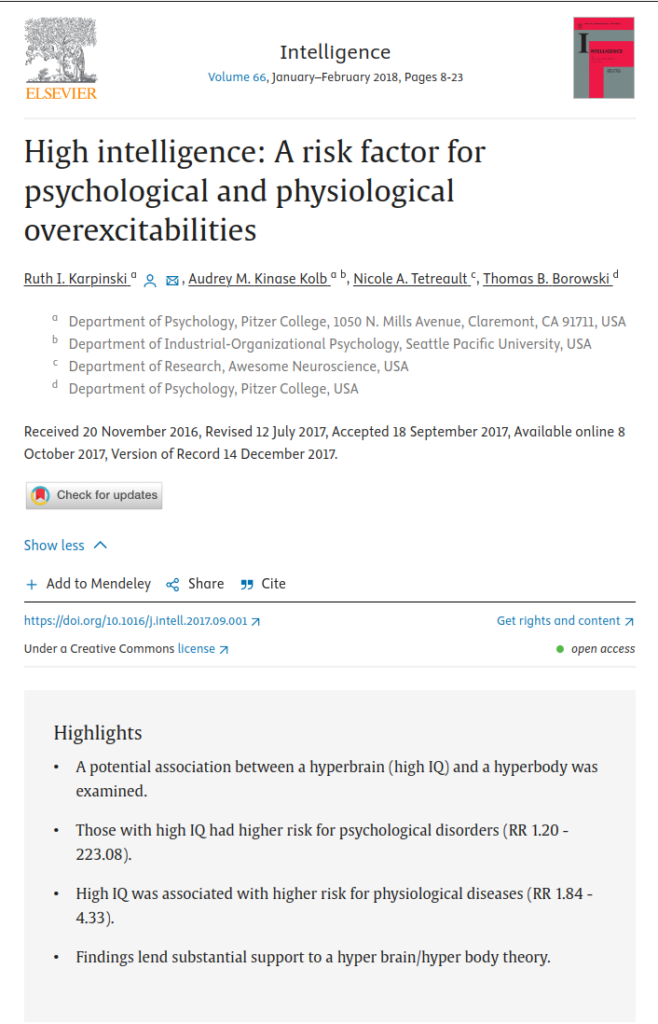High intelligence is touted as being predictive of positive outcomes including educational success and income level. However, little is known about the difficulties experienced among this population. Specifically, those with a high intellectual capacity (hyper brain) possess overexcitabilities in various domains that may predispose them to certain psychological disorders as well as physiological conditions involving elevated sensory, and altered immune and inflammatory responses (hyper body). The present study surveyed members of American Mensa, Ltd. (n = 3715) in order to explore psychoneuroimmunological (PNI) processes among those at or above the 98th percentile of intelligence. Participants were asked to self-report prevalence of both diagnosed and/or suspected mood and anxiety disorders, attention deficit hyperactivity disorder (ADHD), autism spectrum disorder (ASD), and physiological diseases that include environmental and food allergies, asthma, and autoimmune disease. High statistical significance and a remarkably high relative risk ratio of diagnoses for all examined conditions were confirmed among the Mensa group 2015 data when compared to the national average statistics. This implicates high IQ as being a potential risk factor for affective disorders, ADHD, ASD, and for increased incidence of disease related to immune dysregulation. Preliminary findings strongly support a hyper brain/hyper body association which may have substantial individual and societal implications and warrants further investigation to best identify and serve this at-risk population.
High intelligence: A risk factor for psychological and physiological overexcitabilities
Publication
Intelligence
Volume 66, Pages 8-23
Abstract
Web and Email Links
Related Listings
Journal
AAAS Eureka Alert
Researchers identified genes and biological pathways linked to immune regulation, metabolism, and circadian rhythm in people who reduced their hypertension after eight-week relaxation response training
Journal
Behavioral Medicine
This randomized, prospective study investigated the effectiveness of two group behavioral medicine interventions for primary care patients experiencing physical symptoms with a psychosocial component (eg, palpitations, gastrointestinal disturbances, headaches, malaise, sleep disorders). The subjects were 80 volunteers at a health maintenance organization (HMO) in the greater Boston area. Both interventions focused on the mind/body relationship and used didactic material, relaxation-re […]
Journal
Behavior Modification
Sleep latency changes following behavioral interventions for sleep-onset insomnia are only moderate because the majority of insomniacs do not achieve good sleeper status at posttreatment. This study evaluated the efficacy of a multifactor behavioral intervention consisting of stimulus control and relaxation-response training (n = 10) compared to stimulus control alone (n = 10) for sleep-onset insomnia. Only the multifactor subjects' mean posttest sleep latency fell within the good sle […]

